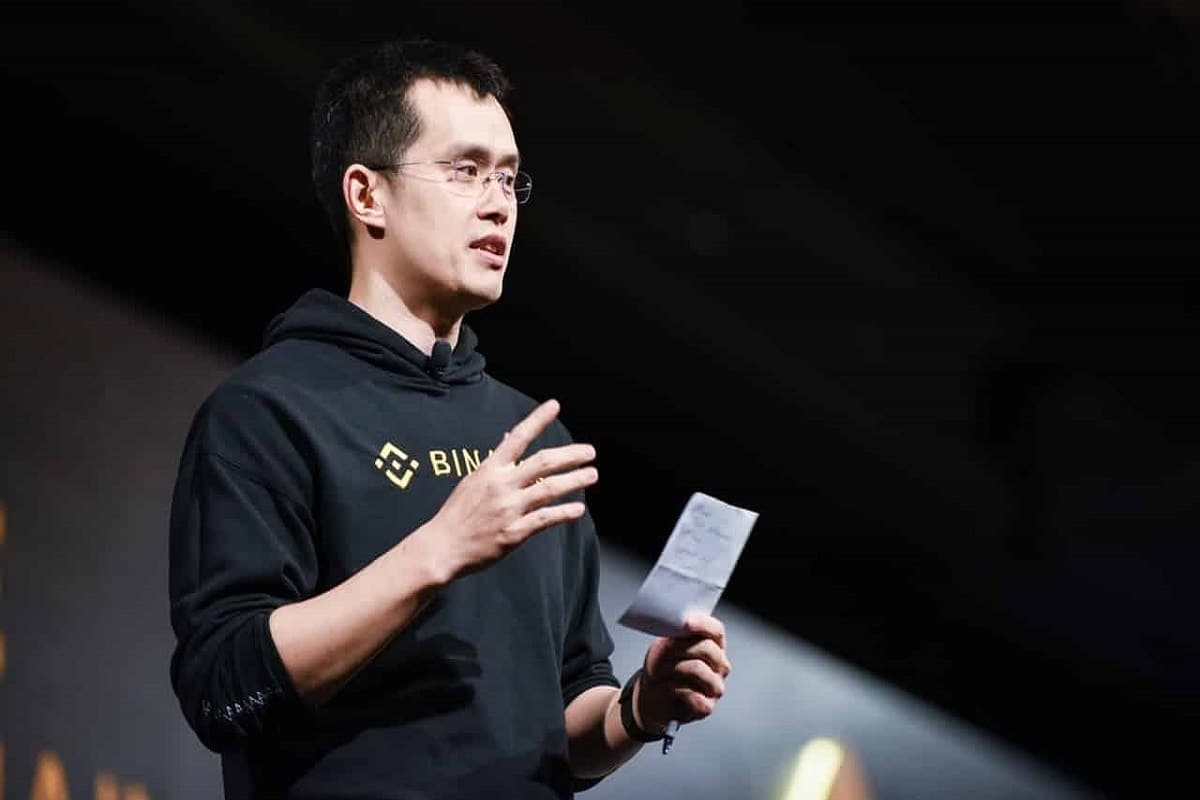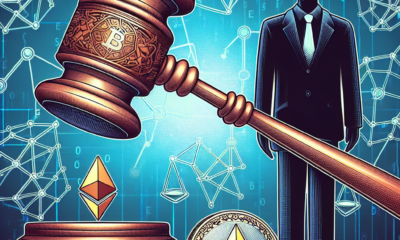Altcoins
Binance Founder CZ Expresses Gratitude to Supporters and Unveils Plans After Prison

In a turn of events that has shaken the cryptocurrency community, Binance founder Changpeng “CZ” Zhao has been sentenced to a four-month prison term, a decision that has sparked considerable discussion regarding legal precedents and regulation compliance within the burgeoning sector. Following the sentencing, CZ took to social media to express his gratitude towards his supporters and outlined his vision for the future, emphasizing a shift towards education and a continued passive investment in cryptocurrencies.
Changpeng “CZ” Zhao, whose revolutionary contributions to the digital currency landscape through Binance have made him a prominent figure, found himself at the center of legal scrutiny leading to a guilty plea for a single count of violating the Bank Secrecy Act. This plea comes as part of a larger narrative of regulatory bodies clamping down on what they perceive as a laissez-faire attitude towards financial laws by entities within the cryptocurrency world. Binance’s settlement fee of $4.3 billion to the Department of Justice (DOJ) marked a significant financial recompense, underscoring the severity of the charges levied against Zhao.
Despite the potential for a more severe penalty as per the suggestions of the US DOJ, which proposed a three-year term, Judge Richard Jones opted for a surprising show of leniency, settling on a four-month sentence. This decision diverged from the Probation Office’s recommendations, which aligned more closely with the DOJ’s positioning, suggesting a sentence ranging from 10 to 16 months. Judge Jones justified his decision by highlighting the lack of concrete evidence that Zhao was directly informed of the alleged illicit activities.
Zhao’s response to his sentencing was swift and reflective, acknowledging the support he received during the trial process. “I would like to thank everyone for your care and support, be it writing letters, showing support on social media, or in any other form. They all mean a lot to me and keep me strong. I will do my time, conclude this phase, and focus on the next chapter of my life (education),” Zhao stated on social media platforms.
Moreover, Zhao’s announcement of his intention to dive into the realm of education after serving his term while still maintaining a passive investment stance in crypto assets hints at a potential pivot in his professional journey. This pivot not only signifies a personal evolution but also represents a broader acknowledgment within the cryptocurrency sector of the need for a more structured and compliant approach to innovation and growth.
As discussions around Zhao’s sentencing continue, the case has inevitably brought to light the broader discourse on the need for clearer regulations and compliance standards within the cryptocurrency industry. The sentence handed down to one of the sector’s foremost figures has underscored the precarious balancing act between fostering innovative financial technologies and ensuring they operate within the bounds of established legal frameworks.
The dialogue surrounding the adequacy of financial penalties and prison terms for executives in the tech industry, particularly in cases involving vast sums of money and significant regulatory oversight, has been reignited. With Zhao’s net worth estimated to be over $40 billion, questions regarding the proportionality of punishments and their effectiveness as deterrents against white-collar crime have resurfaced.
This case, and the responses it has elicited across various sectors, serves as a pivotal moment for the cryptocurrency industry. It emphasizes the imperative for entities operating within this space to adopt rigorous compliance measures and for regulatory bodies to establish clear, fair guidelines that ensure innovation is not stifed by fear of legal reprisal but fostered within a framework that protects stakeholders at all levels. As the industry continues to evolve, so too must the dialogue between these innovators and the institutions that seek to regulate them, aiming for a future where technology and compliance harmoniously coexist.

-

 Press Releases11 months ago
Press Releases11 months agoGaming Technologies of the New Time!
-

 Bitcoin8 months ago
Bitcoin8 months agoBitcoin Surges Past $64K as SEI and POPCAT Lead Daily Crypto Gains on September 25
-

 Altcoins3 months ago
Altcoins3 months agoBitcoin Declines Below $80K: deVere CEO Nigel Green Remains Bullish on Long-Term Outlook Following Strategic U.S. Bitcoin Reserve Announcement
-

 Press Releases1 year ago
Press Releases1 year agoEvo Exchange: Redefining the Decentralized Exchange Landscape
-

 Altcoins2 months ago
Altcoins2 months agoCalls for Enhanced Discussion on Bitcoin as Brazil’s Reserve Asset: A Move Towards ‘Internet’s Gold’
-

 Press Releases9 months ago
Press Releases9 months agoCODE, a Newly Born Project Brings Decentralization Back to the Main Menu
-

 Bitcoin1 year ago
Bitcoin1 year agoHouse’s McHenry Charges SEC Chief Gensler With Misleading Congress Regarding Ethereum (ETH)
-

 Press Releases1 year ago
Press Releases1 year agoGolden Cobra: Pioneering Real Utility and Sustainability in the Meme Coin Space



